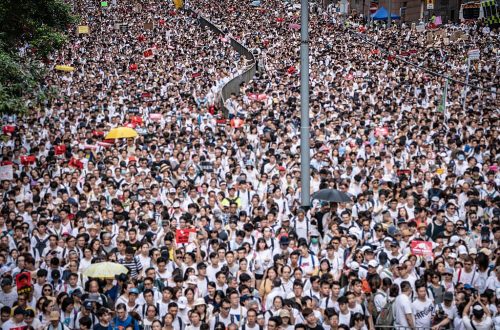
China celebrates its Valentine’s day, the Qixi festival today, the seventh day of the seventh Lunar month, when the mythical tragic couple, the Cowherd and his Weaver girl love meet on the Magpie Bridge. Of course being Chinese, this day dedicated for lovers is not the day to either have sex or get married.
It is also the seventh day on HP when comments close and a new post is due. Commenters are welcome as always to send in articles. For my part I will be focusing on Asia the next couple of weeks, starting with China today. I have been reading Ghost Cities of China by Wade Shepard, and about China’s recent economic woes and trying to make sense of it being poorly educated and pretty ignorant in this area. Its slow-burning property crisis, sometimes compared to America’s mortgage debt crisis, has been in the headlines since last year. Evergrande its giant property developer is teetering as it struggles to meet massive debt liabilities of over $300 billion. Other property developers, facing a liquidity crunch, are getting desperate. Bordering on the bizarre, a developer in one of the provinces of East China announced a generous barter, declaring that buyers could pay for the dwellings in watermelons, capping the upper limit of the ‘fruitful transaction’ at 5,000 kilograms and 100,000 yuan. Others are bartering wheat, peaches and garlic and embarrassing the powers that be.
Everyone knows that China has been on a massive infrastructure building spree the last 2 decades. The pace of urbanisation has been of historical proportions. Some of the numbers and details in Wade Shepard’s book are mindboggling:
- China had 69 cities in 1949, it has 658 cities now.
- A quarter of the world’s largest cities are in China.
- China used more cement in the years 2010-13 than the US did in the entire 20th century.
This frenetic development suited its economy -provinces cranked up land sales to property developers as an easy way to meet economic growth targets in double digits annually – and its citizens’ tendencies as the average chinese believes that property is the best investment and pension plan. The Chinese often pay for their properties via presales – a popular way to buy a home or apartment in China, in which buyers have to start repaying their loans even on projects that are still under construction.
So the local governments sold massive tracts of land, developers built crazily and borrowed merrily, and a huge debt bomb was being built. The government tried to reduce this debt exposure via cooling measures in 2020 aimed at the rather out of control developers. The global shutdown due to Covid didn’t help.
China’s real estate sector and its related activities make up 30 per cent of the country’s economy and is the engine of its economic growth.
Today, after years of unchecked infrastructural expansion, the prices of houses are falling, even with a generous mortgage policy, loose monetary policy, and other subsidies. Land sales fell 30% during the first six months of this year from a year ago. Sales of new apartments fell 35% in the first five months of 2022.
Across China, home buyers are revolting and refusing to pay mortgages as cash-strapped property developers drag on construction projects, escalating the country’s real estate crisis and risks of bad debt for banks. Buyers of 35 projects across 22 cities have decided to stop paying mortgages as of July 12 due to project delays and a drop in real estate prices. The mortgage protests can be silenced by the usual heavy handed means but consumer confidence has been heavily dented.
Although this is a bad moment for China and Xi Jinping, China has the ability to deal this crisis up to a point. China is expected to launch a Rmb300bn real estate fund to help property developers resolve their debt crisis. Banks facing financial problems will be bailed out by local governments and may allow households to suspend mortgage payments on halted projects. The CCP’s largesse however will not extend to offshore lenders who stand to lose the most.
It is going to get interesting watching the world’s second biggest economy as it papers over the cracks. As an aside, it was rather amusing to read a recent Unherd article exhorting the UK to follow China’s example to solve its housing crisis.


